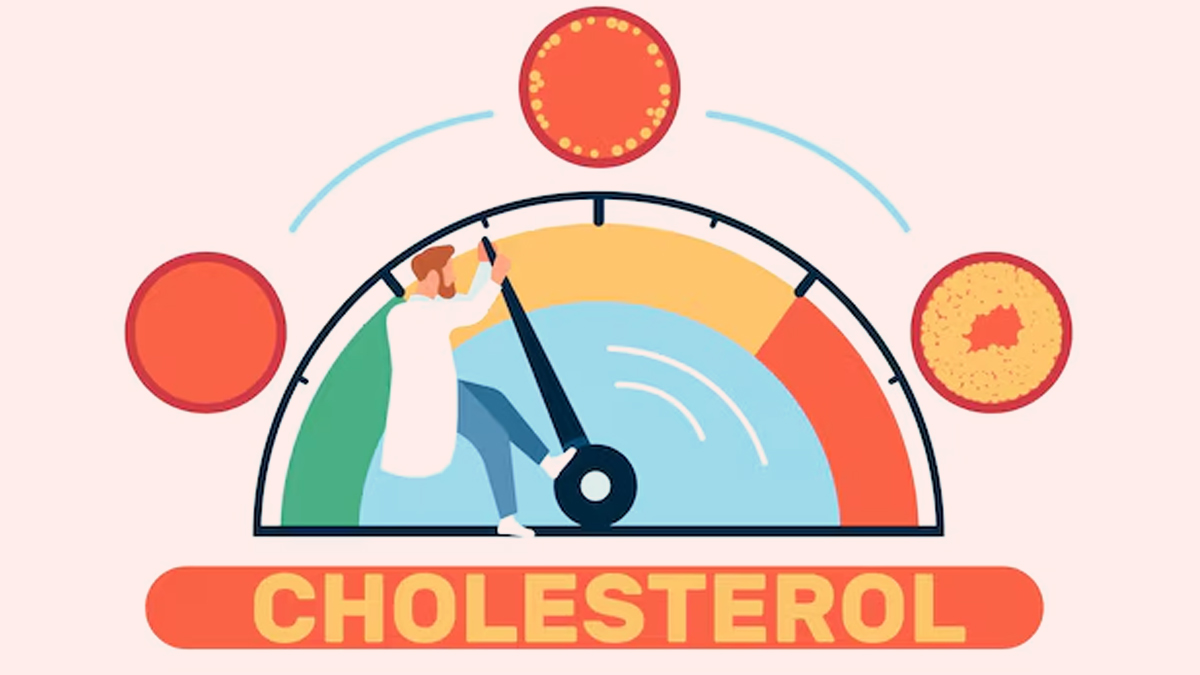
Our body releases various hormones, each responsible for various bodily functions. Testosterone, which is primarily the male sex hormone, carries several processes in the body, such as regulating sex drive, bone mass, and sperm production. However, did you know it may affect your cholesterol levels? We spoke to Dr Manju Gupta, Senior Consultant, Obstetrician and Gynaecologist, Motherhood Hospitals, Noida, who explained the connection between the two and why monitoring remains crucial.
Table of Content:-
Link Between Testosterone and Cholesterol Levels

Before we understand the link between the two, it is important to learn the types of cholesterol.
Cholesterol is a waxy substance found in the blood and cells of your body and exists in two forms. High-Density Lipoprotein (HDL), often called 'good' cholesterol, helps remove excess cholesterol from the bloodstream, reducing the risk of heart disease. The other form, Low-Density Lipoprotein (LDL), is commonly known as 'bad' cholesterol. The LDL cholesterol can build up in artery walls, causing plaque buildup and increased risk for cardiovascular conditions, such as heart attacks.
Testosterone can have an impact on both HDL and LDL cholesterol levels. This impact can vary from person to person due to genetics, lifestyle, and pre-existing health conditions. "It can increase LDL levels in some situations, which may lead to atherosclerosis, a condition where plaque builds up in the arteries. This buildup of plaque increases the risk of cardiovascular events, including heart attacks and strokes," added Dr Gupta.
A 2021 study found that low testosterone levels can increase the risk of cardiovascular problems, while testosterone replacement therapy, which boosts those levels, may reduce the likelihood of developing cardiovascular disease.
Additionally, a 2023 meta-analysis found that testosterone treatment can help reduce body fat, increase fat-free mass, improve bone density, and decrease total cholesterol levels.
Also Read: What Are The Warning Signs Of Low Testosterone? Doctor Shares Ways To Recover
Clinical Implications of Testosterone's Effect on Cholesterol Levels

After reaching 40, the testosterone levels in men start declining. This decline has been linked to a rise in overall mortality and cardiovascular risk. Low testosterone levels in men can increase the risk of developing Coronary Artery Disease (CAD), metabolic syndrome, and type 2 diabetes, as stated in a 2017 study.
Dr Gupta added, "Testosterone can affect the cholesterol levels in your body, which influences the heart health by changing the balance of good and bad cholesterol. For this reason, regular monitoring of both testosterone and cholesterol levels is crucial, especially for people undergoing hormone therapy or those with a family history of cardiovascular disease."
Also Read: Age-Wise Cholesterol Guide: How Much Should Your Cholesterol Be At Each Age? Doctor Explains
Lifestyle Modifications to Mitigate Effects of Testosterone on Cholesterol Levels
You can manage the effects of testosterone on cholesterol levels by making changes in your diet and lifestyle. Here are some expert-recommended strategies that you should follow:
- Include heart-healthy eating habits, such as consuming fruits, vegetables, whole grains, and healthy fats. You should also avoid consuming saturated fats and sugars as they raise cholesterol levels.
- You should participate in physical activities like exercise, swimming, or brisk walking as it can improve cholesterol levels by increasing HDL and reducing LDL levels.
- Did you know smoking can lower HDL cholesterol and damage blood vessels, further increasing cardiovascular risk? Conversely, quitting smoking can have immediate and long-term benefits for heart health.
- Get the help of an expert if necessary to manage high cholesterol levels.
Bottomline
Dr Gupta concluded, "Testosterone helps with muscle and strength, sperm production, sex drive, and development of the penis and testes in men. In women, it helps with ovarian function, bone strength, and libido. It may impact the cholesterol levels in your body, leading to certain heart diseases. However, it is important to note that the studies are limited."
[Disclaimer: This article contains information provided by an expert and is for informational purposes only. Hence, we advise you to consult your professional if you are dealing with any health issue to avoid complications.]
How we keep this article up to date:
We work with experts and keep a close eye on the latest in health and wellness. Whenever there is a new research or helpful information, we update our articles with accurate and useful advice.
Current Version